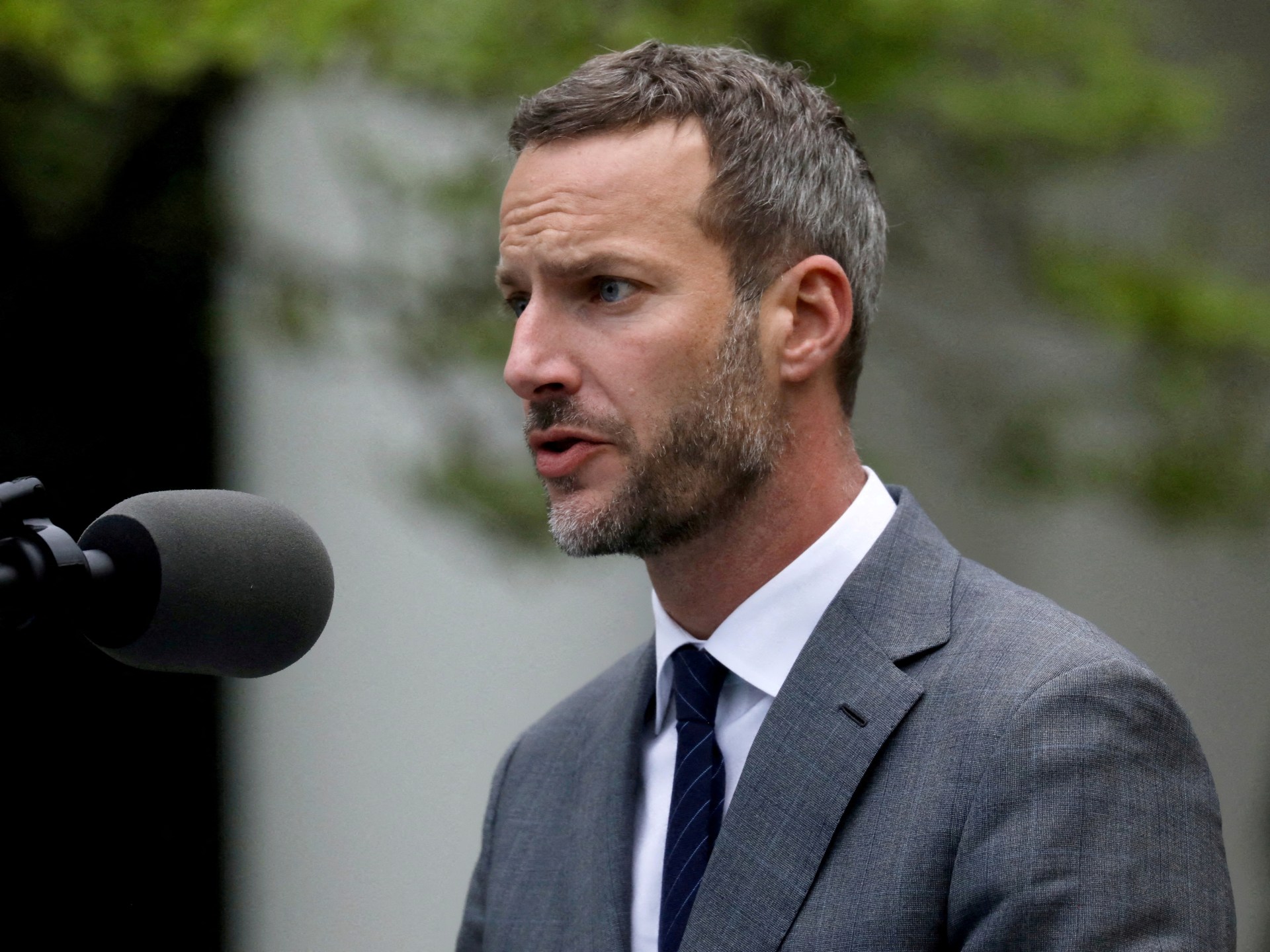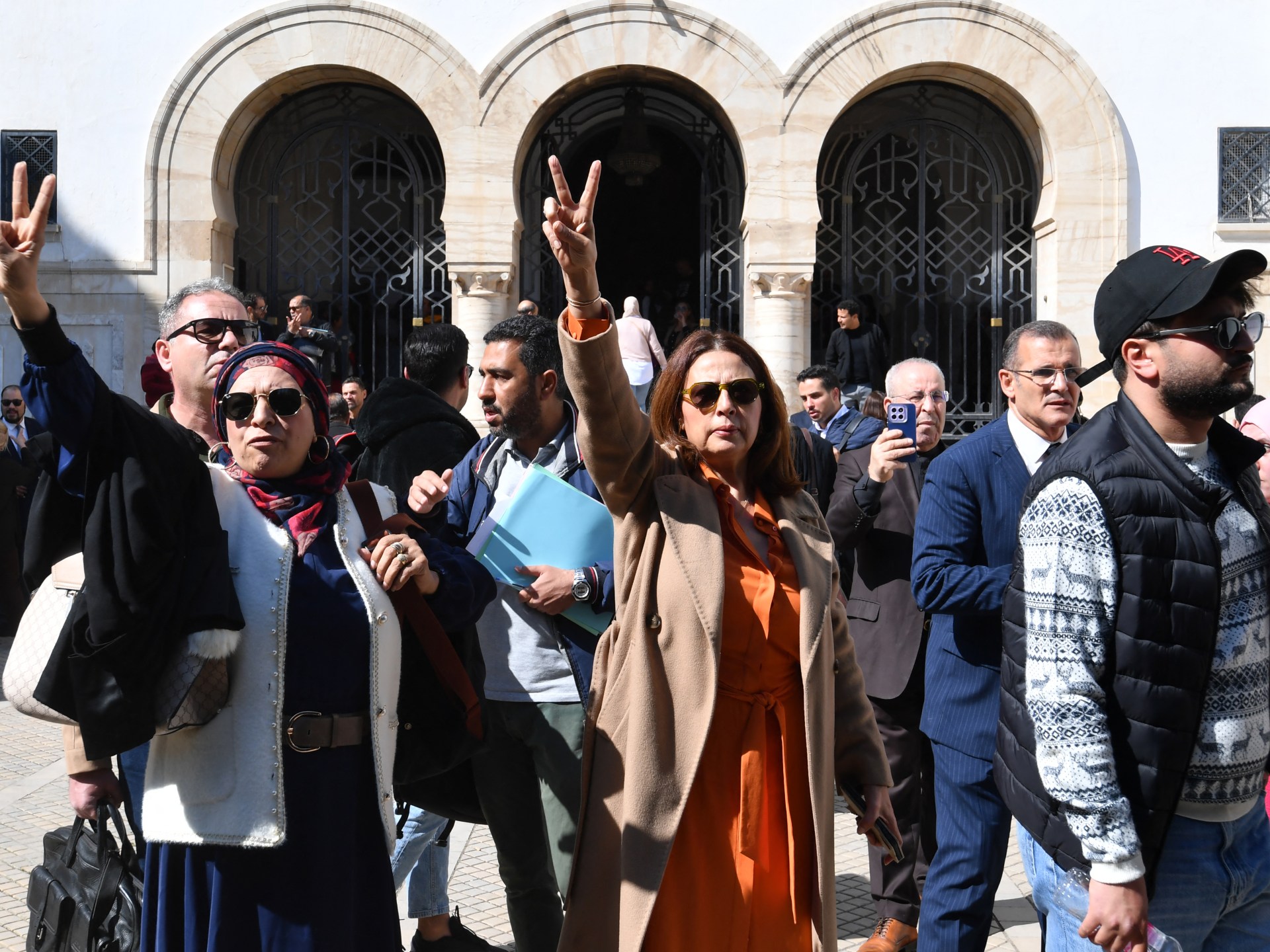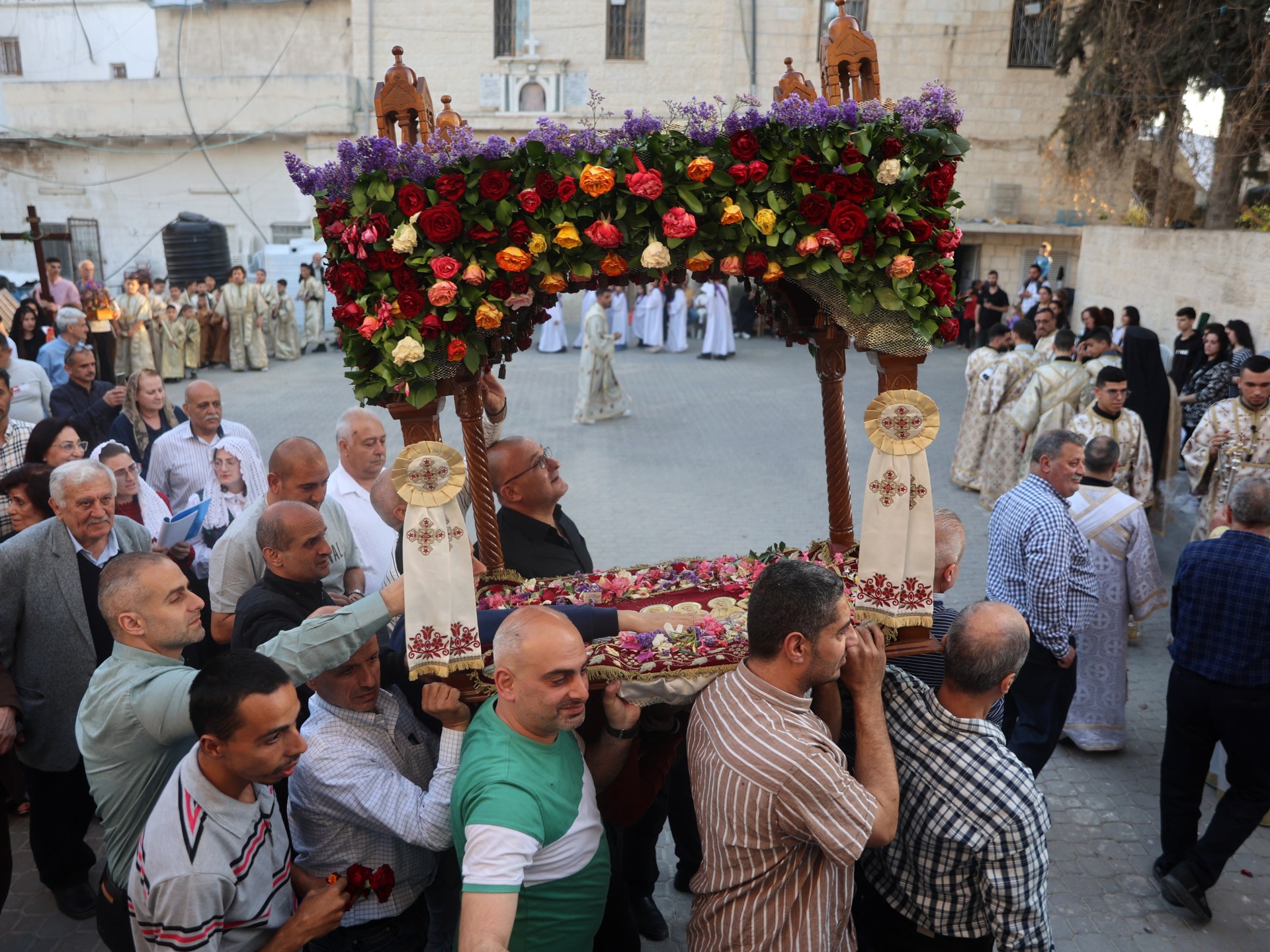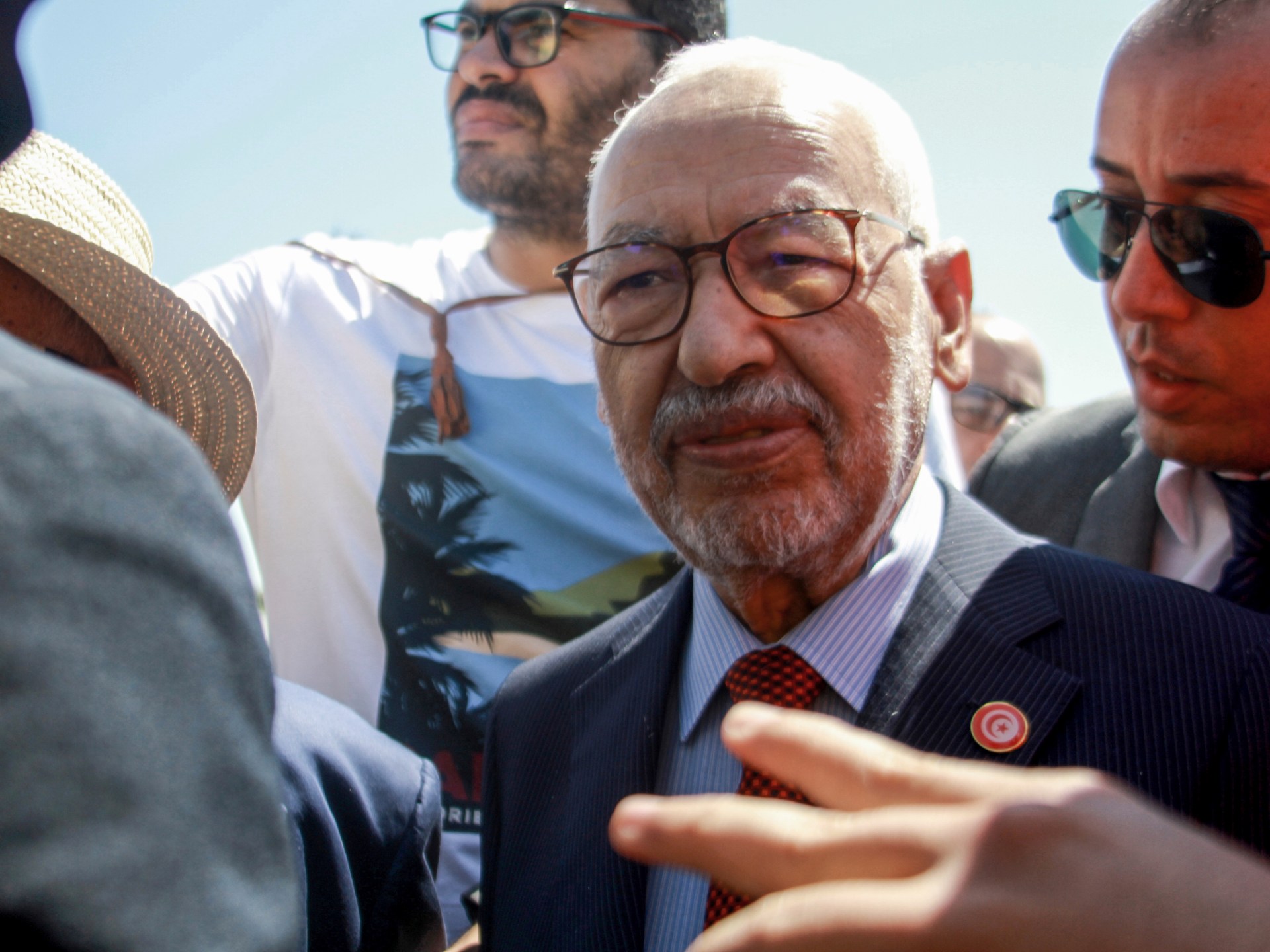Middle East
US envoy says fighting in Gaza would ‘end immediately’ if captives released | Gaza News

Adam Boehler tells Al Jazeera ‘nothing goes forward’ on ceasefire deal until release, as Israel’s assault continues.
Washington, DC – Israeli attacks on Gaza will end if Hamas releases all remaining captives, US President Donald Trump’s top hostage envoy said in an interview with Al Jazeera.
“I can tell you that the fighting would end immediately, immediately if hostages are released,” said Adam Boehler, US special envoy for hostage response. “The day that those hostages are released, the fighting will end.”
Boehler’s comments on Wednesday came as the death toll from Israel’s offensive in Gaza reached 51,025, with at least 1,652 Palestinians killed since Israel’s attacks resumed after an earlier ceasefire brokered by Trump’s administration ended in March.
Despite Israel’s ongoing assault on the enclave, Boehler said the ball was in Hamas’s court.
“They can reach out any time,” he said from the White House lawn. “Hamas can end this.”
Boehler added that Trump has been clear that “nothing goes forward until all hostages are released”.
“Step one is all hostages released,” Boehler said. “Step two is, let’s figure out this day after.”
He did not elaborate on what that “day after” would look like, only referring briefly to Trump’s suggestion of mass displacing Palestinians from Gaza to neighbouring countries.
Hamas has said it will only release more captives if a new agreement to end the fighting is reached first. Such an agreement would need to include guarantees that have so far proven non-starters, including a full withdrawal of Israeli forces from Gaza.
Under the previous six-week ceasefire agreement, Hamas released a total of 33 captives held in Gaza in exchange for an increase in humanitarian aid into the enclave and the release of Palestinian prisoners held by Israel.
A second phase, agreed to in principle, was meant to see the release of all remaining captives held in Gaza in exchange for a permanent end to fighting. A third phase was meant to see the release of all the bodies of captives and the implementation of a reconstruction plan.
But negotiations broke down following the completion of the first phase of the agreement, with Israel immediately renewing attacks. Beyond those killed, the United Nations has said at least 500,000 Palestinians have been newly displaced in the latest round of fighting.
Earlier this week, Israeli Defence Minister Israel Katz said the military had completed creating a “security zone” between the southern cities of Rafah and Khan Younis. He added that the Israeli military would “vigorously” expand its operation in Gaza.
Israel has estimated that 24 living captives remain in Gaza, all believed to be male soldiers. The bodies of 35 other captives are also believed to still be in the Palestinian enclave.
Edan Alexander
Boehler, who held direct talks with Hamas officials in March, spoke to Al Jazeera after Hamas rejected a new Israeli ceasefire proposal calling for the group to fully disarm the day before.
Hamas also claimed on Tuesday that it had lost contact with the group holding Israeli-American captive Edan Alexander after “direct Israeli bombardment” targeted the area where he was being held.
Boehler dismissed the claim, saying he was certain Alexander was in a safe place and that Hamas would be “stupid” to harm him.
If anything were to happen to Alexander, it’s “not going to be pretty”, he added, without elaborating.
Middle East
Tunisian court hands opposition figures lengthy jail terms | Human Rights News

Dozens of defendants found guilty of “conspiracy against state security” and given sentences of 13 to 66 years.
Dozens of opposition figures in Tunisia have been handed lengthy prison terms on national security charges, according to state media.
A number of the North African country’s most senior opposition politicians were among 40 people sentenced on Saturday, including a former justice minister and diplomats. Critics insist the charges are trumped up and say they are symbolic of President Kais Saied’s authoritarian rule.
The TAP state news agency, quoting an unnamed judicial official, reported that the sentences ranged from 13 to 66 years.
An official from the anti-terrorism prosecutor’s office was quoted by Jawhara FM as saying the defendants were found guilty of “conspiracy against state security”, and “belonging to a terrorist group”, including liaising with “foreign powers” to undermine Saied’s rule.
The precise details of the trial remain cloudy, with the exact number of those on trial and the specific charges they face unclear.
It was not immediately clear either on Saturday whether all of the estimated 40 defendants in the case, which has become known as the “conspiracy case” and been running for two years or so, were found guilty and given prison terms.
About 20, many of whom have fled Tunisia, were sentenced in absentia, including the French intellectual, Bernard-Henri Levy, who is accused of being a conduit between defendants and foreign parties.
“President Saied has weaponised Tunisia’s judicial system to go after political opponents and dissidents, throwing people in arbitrary detention on flimsy evidence and pursuing them with abusive prosecutions,” Bassam Khawaja, deputy Middle East and North Africa director at Human Rights Watch, told Al Jazeera earlier this month.
On Friday evening, defence lawyers denounced the trial after the judge finished reading the accusations and began deliberation without hearing from either the prosecution or the defence.
“In my entire life, I have never witnessed a trial like this. It’s a farce, the rulings are ready, and what is happening is scandalous and shameful,” said lawyer Ahmed Souab.
Authorities have accused the defendants, who also include the former head of intelligence, Kamel Guizani, as well as media figures, of attempting to destabilise the country and overthrow Saied.
A number of the defendants – including Issam Chebbi, Ghazi Chaouachi and Jawhar Ben Mubarak – have been in custody since being detained in 2023. Chebbi is a member of the opposition National Salvation Front coalition.
“The authorities want to criminalise the opposition,” Chebbi said on Friday.
Saied rejects accusations that he is a dictator. He said in 2023 that the accused politicians were “traitors and terrorists” and that any judge who would acquit them would be an accomplice.
Saied consolidated his power in 2021 by dissolving the parliament and sacking the then-prime minister.
The opposition leaders involved in the case accused him of staging a “coup”.
They say the charges against them were fabricated to stifle the opposition and establish a one-man, repressive rule.
Some of Tunisia’s most prominent opposition leaders are already in prison.
Rached Ghannouchi, the head of Ennahdha, was arrested in April 2023 and sentenced to one year in prison on charges of incitement.
Earlier this year, he was handed a further 22-year sentence on charges that included plotting against state security. He was also sentenced to three years for accusations that his party received foreign contributions.
Middle East
Deadly, sombre Good Friday as 58 people killed in Israeli attacks on Gaza | Israel-Palestine conflict News

Palestinian Christians in Gaza and the occupied West Bank are holding temperate gatherings leading up to Easter.
Israeli strikes on Gaza have killed at least 58 Palestinians in one day as Christians mark Good Friday in the besieged and bombarded enclave.
More than half of the casualties were in Gaza City and northern Gaza, but deadly attacks took place across the Palestinian Strip, including in Khan Younis and Rafah in the south, medical sources told Al Jazeera on Friday.
The Israeli military said troops were operating in the Shaboura and Tal as-Sultan areas near Rafah, as well as in northern Gaza, where Israel has taken control of large areas east of Gaza City.
On Friday, Israel’s defence minister, Israel Katz, repeated that Israel intended to achieve its war aims.
“The [Israeli army] is currently working towards a decisive victory in all arenas, the release of the hostages, and the defeat of Hamas in Gaza,” he said in a statement.
Palestinian Christians in Gaza however continued to hold temperate gatherings leading up to Easter, amid the attacks.
Speaking to Al Jazeera from a local church, Ihab Ayyad said he used to gather with other congregants and visit his neighbours’ homes every year to celebrate.
“This year, we didn’t make the visits because of the total destruction everywhere, as the [Israeli] occupation forces have levelled most of the houses of my relatives and my neighbours,” Ayyad said. “A lot of my relatives and neighbours were martyred or displaced in different places. We haven’t celebrated because we feel very sad.”
Ramez al-Soury said he used to travel out of Gaza to Bethlehem or Jerusalem for the holy week.
But now, an “atmosphere of war” permeates Gaza. “The death smell is everywhere. The smell of killing and destruction is putting a lot of pressure on us,” he said.
Reporting from Gaza City, Al Jazeera’s Hani Mahmoud said the Christian community is holding onto their faith and has gathered at one of the oldest churches in the world in Gaza – not in defiance but in devotion.
“In Gaza, Good Friday is the power of faith and the quiet strength of those who still believe in peace even when the world around them is nothing but a stage filled with violence and death,” he said.
West Bank settler violence
Rituals to mark Good Friday and Easter have also been held in the occupied West Bank.
There are about 50,000 Palestinian Christians in the region. Israeli authorities, however, require them to acquire permits to travel to Jerusalem, making it difficult for many to join those celebrations.
Moreover, Israeli settlers and the military also attacked Palestinian people on their land in the town of Biddya, in the Salfit governorate in the occupied West Bank, according to Al Jazeera Arabic on Friday, tempering the celebrations.
The Palestine Red Crescent said that a Palestinian was injured in the attack.
Local sources also told Al Jazeera Arabic that dozens of settlers stormed Jabal al-Urma, a hill in the town of Beita in the Nablus governorate, under the protection of the Israeli army.
Settlers are Israeli citizens who live illegally on private Palestinian land in the occupied West Bank and East Jerusalem.
Israeli settler and military violence has soared across the West Bank – particularly in the north of the territory – since the war on Gaza began in October 2023. The United Nations has said this violence has displaced roughly 40,000 Palestinians since Israel began a new military operation in the occupied West Bank in January.
Middle East
Allies say Ghannouchi ‘unjustly’ held, as he marks 2 years in Tunisian jail | Human Rights News

International Committee for Solidarity with Rached Ghannouchi decries ‘repressive campaign’ against Ennahdha party leader.
Marking the second anniversary of the arrest of Tunisia’s prominent opposition leader Rached Ghannouchi, an international committee formed last year to raise awareness about his imprisonment says he is being held “unjustly” and on “trumped-up charges”.
The International Committee for Solidarity with Rached Ghannouchi called for the immediate release of the imprisoned Ennahdha party leader and former speaker of Tunisia’s parliament.
In a statement on Thursday, it said that more than 15 cases have been brought against Ghannouchi, and “several unjust convictions and sentences” have been issued.
The most recent of these was a 22-year prison sentence issued in February on charges that included plotting against state security – a case “to which he has no connection”, the committee said.
Earlier this year, Ghannouchi was also sentenced to three years for accusations that his party received foreign contributions.
The 83-year-old, who has been the main rival of Tunisian President Kais Saied, was arrested in April 2023 and sentenced to one year in prison on charges of incitement.
He has been a vocal critic of Saied, and became the highest-profile figure to be arrested in the continuing consolidation of power by the president who was elected in 2019 and has overseen a wave of repression and legal reforms that have expanded his rule.
“These unjust trials and sentences take place within the context of a widespread repressive campaign led by Kais Saied’s regime, which is targeting opposition voices from all backgrounds, repressing organised action in all its forms, controlling the media and civil society, and silencing critical voices,” the committee said in its statement.
It said Saied’s government has to “exploit the judiciary as a tool for settling political scores”.
‘An era of political prisoners’
The committee’s statement comes just days after United States-based Human Rights Watch (HRW) called on the Tunisian government to halt its crackdown on opposition and free all detainees.
The rights group said arbitrary detention was being used to eliminate dissent in Tunisia amid a trial of prominent opposition figures – including Ghannouchi – on conspiracy charges.
In a report released Wednesday, HRW reinforced opposition leaders’ concern over what they call the authoritarian rule of Saied since he dissolved parliament in 2021 and began ruling by decree.
The opposition described Saied’s move as a coup. He has denied such accusations, professing he would not become a dictator but rather is trying to rescue the North African country from political chaos and rampant corruption.
The report said Tunis had turned arbitrary detention into a cornerstone of repressive policy.
“Saied’s government has returned the country to an era of political prisoners, robbing Tunisians of hard-won civil liberties,” said Bassam Khawaja, deputy Middle East and North Africa director at HRW.
Since 2023, authorities have arrested dozens of prominent political opposition figures as well as journalists, activists and lawyers in a crackdown critics say has undermined the democracy gained in the 2011 Arab Spring popular uprising.
-

 Conflict Zones2 days ago
Conflict Zones2 days agoHaiti in ‘free fall’ as violence escalates, rights group warns | Armed Groups News
-

 Sports2 days ago
Sports2 days agoJu Wenjun: Chinese grandmaster makes history by winning fifth Women’s World Chess Championship
-

 Sports2 days ago
Sports2 days agoAaron Boupendza: 28-year-old former MLS player dies after falling from 11th floor balcony in China
-

 Sports1 day ago
Sports1 day agoLos Angeles Rams honor first responders by conducting 2025 NFL Draft from Los Angeles Fire Department
-

 Education21 hours ago
Education21 hours agoHarvard’s battle with the Trump administration is creating a thorny financial situation
-

 Europe2 days ago
Europe2 days agoTrump blasts Fed Chair Powell, saying his ‘termination cannot come fast enough’
-

 Sports2 days ago
Sports2 days agoSerena Williams says she would have received a 20-year ban for a similar doping offense to Jannik Sinner
-

 Lifestyle2 days ago
Lifestyle2 days agoThousands of pilgrims trek through New Mexico desert to historic adobe church for Good Friday




